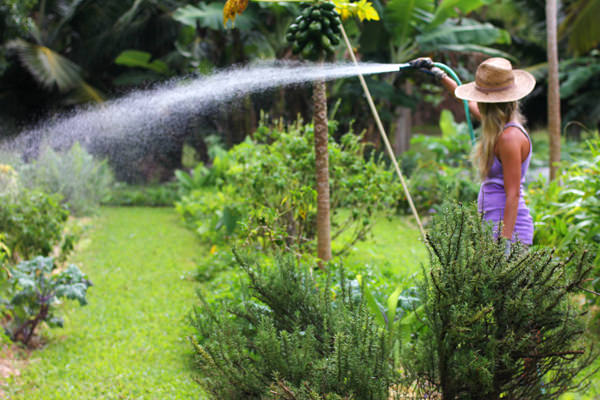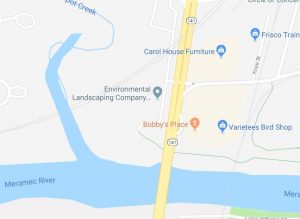June Advice for the St. Louis Landscaper!
Advice for the St. Louis Landscaper in June
1. Beware of poison ivy as you head out for a camping trip or hiking a favorite trail. Lotions, applied like sunscreen, are available at most drug stores to deactivate the oily chemical that is responsible for the dreaded rash. Poison ivy can be identified by its foliage – 3 leaflets per leaf – and its growth habit as either groundcover or tree-climbing vine.
2. Snakes are a common sight during this time of year. Most are friendly and good to have around for eradicating pesky voles and mice. Remove them with a long pole if you have a phobia of snakes. Snake repellents are generally a waste of money. Removing brush and piles of wood, as well as eliminating mice are important strategies for keeping snakes away from a home. Bird netting strung around an area at ground level will trap snakes. Though you should monitor the trap and release captured snakes promptly.
3. Vegetable and herb plantings benefit from routine fertilizing on a monthly or six-week schedule. Do not fertilize on dry garden soil. It is better to wait for rainfall or after irrigating. Most fast growing vegetables prefer generous applications of nitrogen from calcium nitrate, cottonseed meal, fish emulsion, or manures. Container plantings are best fed with specialty fertilizers or organic fertilizers.
4. As cool-season vegetables are rouged out of the garden, refresh the soil with compost, manure or nitrogen-rich organic fertilizer before planting or sowing successive crops. A legume cover crop can be planted following sweet corn to replace nutrients and improve the soil after it is turned under a couple months later.
5. It is often difficult to give gardeners specific instructions on watering a garden. Considering water lost through plant use (transpiration) and evaporation on a hot afternoon, a garden that is only 100 square feet in size will utilize the equivalent of a 55-gallon drum of water or more on a weekly basis. While woo dy plants can tolerate less water, vegetable plants will suffer if water is unavailable, reducing yield and threatening their very survival.
dy plants can tolerate less water, vegetable plants will suffer if water is unavailable, reducing yield and threatening their very survival.
6. Squash vine borer, cucumber beetles, bean leaf beetles, Japanese beetles, corn earworms and stalk borers are common summer pests. There are numerous insecticides on the market for plethora of insects found in a vegetable garden. These products include chemical, biological and botanical active ingredients. Explore your options before using insecticides and give consideration to the time of day you spray and how it may affect beneficial insects in your garden.
7. In the mountain regions, cole crops and vegetable seeds of early maturing varieties can be sown for the fall garden. Tomato suckers can be rooted and set out into the garden to extend the season. Transplants of collards, kale, Swiss chard and brussel sprouts can be planted.
8. Summer is a great time to prune, thin canopies or limb up shade trees. Do not mistake tree pruning as “topping” shade trees, which is not a recommended practice by certified arborists. The general rule of thumb is to remove no more than 15 percent of the tree’s foliage. Trees that are too large for a yard are best removed and not topped.
9. Garden centers often run deep discounts in summer to clear out the spring inventory. While this is a great opportunity to expand your garden, beware of plants that have dead roots and may need extensive care to survive.
10. Don’t forget your garden while on vacation. Find a friend or professional gardener to water your container plantings while you are away. Your annual flowers may require watering at least once a week, as well.
Summers are extreme in St. Louis, so let us help! We want your property to be looking great all season.
Environmental is a premier St. Louis Landscaping Company servicing all parts of the St. Louis and Illinois East Metro areas, including Manchester, Richmond Heights, Marlborough, Hazelwood, Florissant, Lake St. Louis, Des Peres and Eureka, just for some examples!
Questions about our service area, or have an idea about a project and need some advice? Give us a call at (636) 225-3848 or contact us online! We can usually find a way to accommodate you on many types of projects.
Tory Catanzaro – Owner, Environmental Landscaping








